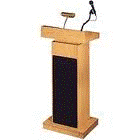
Discipline-Based Education Research Group Speaker Series
Date of this Version
3-13-2014
Document Type
Presentation
Citation
DBER Group Discussion on 2014‐03‐13
Abstract
Stormwater management is a critical concern for communities in the United States with populations over 10,000 largely because of mandates to reduce stormwater runoff volumes and associated pollutants. A Stormwater Work Group was organized at the University of Nebraska‐Lincoln (UNL) in 2006 to develop educational programs and materials to address municipal stormwater management through green infrastructure and other best management practices. A USDA‐NIFA grant titled “Improving and Conserving Water Resources through Stormwater Management Education for Community Decision Makers of Today and Tomorrow” was received in 2009 which has further supported and greatly expanded work group efforts. This, coupled with support from numerous Nebraska communities, has successfully blended extension programming with several university teaching and research components. The resulting synergy has helped communities and individuals more effectively manage stormwater quantity and quality while building a knowledge‐base of information that will continue to support future initiatives and programs.
Extension programs have included: presentations for design and green industry professionals, MS4 stormwater program managers, municipal officials, Master Gardeners, and homeowners; all‐day rain garden workshops/installations; green infrastructure practice tours; rain barrel construction workshops; web‐based resources; an interactive rain garden model; youth activities; and publications. Research projects are generating information on rain garden hydrologic and plant growth attributes, homeowner perspectives on rain garden installation programs, and evaluation of current regional bioretention design standards. Academic programs at UNL in both landscape architecture and landscape horticulture are expanding curriculum in green infrastructure, low impact development, and stormwater BMP design and construction as a direct result of extension and research efforts. Efforts have culminated in new course lectures as well as several studio design projects that have conceptually addressed real‐world clients and stormwater management projects.
Key to the success of UNL stormwater management programming is the strong integration of extension, teaching, and research, which can often be a significant challenge. Fundamentals of this integration, the multi‐faceted products that have broadened the value of urban‐focused extension stormwater programming, and selected programming impacts will be illustrated and discussed.


Comments
Copyright (c) 2014 David P. Shelton & Steven Rodie